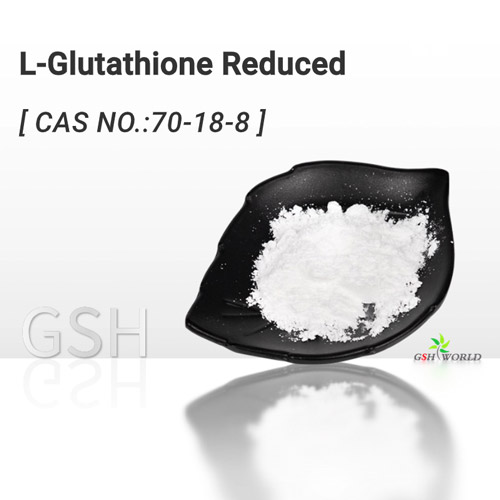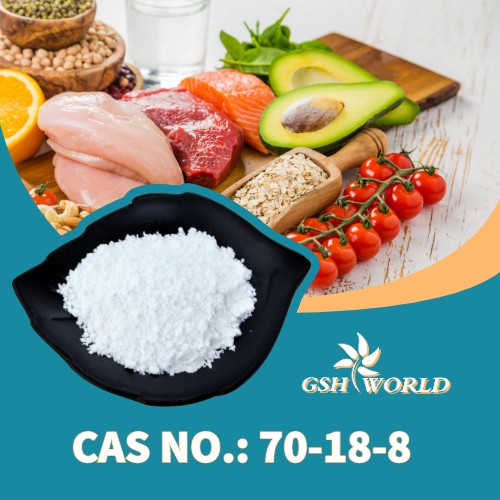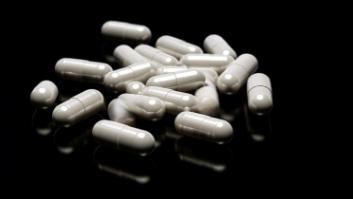When COVID-19 and swine flu hit the scene, cold medicine has become almost a daily standard. But you know what? Often eat cold medicine is actually damaging the body, to prevent A flu, the new coronavirus should be timely supplement glutathione in the body.
How much does often take cold medicine hurt the body?
See what the doctor says
Why is it said that taking cold medicine for a long time can damage the body?
Chengdu Wenjiang District People’s Hospital renal physicians said that we often eat cold medicine, the ingredients are similar, many cold medicine contain acetaminophen (paracetamol) ingredients, such as Tylenol, new Kontec (red), vitamin C Yinqiao tablets, white and black, 999 cold Ling and pain tablets.
Clinical studies have shown that excessive acetaminophen can cause kidney and liver damage.
In October last year, the gastroenterology department of Wenjiang District People’s Hospital in Chengdu treated a patient with liver failure caused by eating cold medicine.
However, kidney and liver damage caused by cold medicines is not unique, such cases are sometimes reported. Glutathione supplier
Nowadays, many people take medicine as soon as they have a cold, and take painkillers for toothache… Because of the convenience of online information, more and more people are used to “seeing a doctor online” – diagnosing themselves by searching for relevant information.
To avoid liver and kidney damage caused by cold medicine, it is necessary to avoid long-term use and overdose of cold medicine.

Behind this abuse of cold medicine, there is a problem that everyone can’t see.
Studies have revealed that Tylenol and acetaminophen can consume a large amount of glutathione in the body, resulting in low glutathione levels.
Glutathione is linked to our health.
The lack of GSH in the human body will cause many diseases, such as cancer, immune diseases, lung diseases, digestive system diseases, cardiovascular and cerebrovascular diseases, infections and inflammation.
Glutathione supplementation for prevention of A/H1N1 and COVID-19
GSH is deeply linked to swine flu and COVID-19, and it may even help prevent these two infectious diseases.
Glutathione and swine flu
Studies have shown that influenza viruses, including swine flu, cause the body to produce large amounts of free radicals that deplete GSH in the mouth, nose and upper respiratory tract.
In the absence of GSH, free radicals can damage infected tissues, as well as neighboring tissues that are not infected, resulting in a flu-related comorbidities, such as pneumonia.
The effect of glutathione on swine flu can summarized as follows:
- 1) H1N1 virus can induce respiratory cell suicide and tissue necrosis, and glutathione can effectively inhibit this destructive effect of the virus;
- 2) Inhibit virus proliferation and infection;
- 3) Neutralize a large number of free radicals caused by viruses;
- 4) Regulate the immune system to fight viruses at the genetic level.
Glutathione and COVID-19
COVID-19 patients are prone to inflammation, especially in the lungs.
Here we have to mention two proteases that associated with inflammation, ACE and ACE2.
Everyone has a different balance between ACE and ACE2, and if ACE is dominant, inflammation is more likely to occur.

Studies have revealed that glutathione has a protective effect against the increased inflammation caused by COVID-19 in the ACE/ACE2 imbalance.
It can seen that GSH plays an important role in the prevention and treatment of swine flu and novel coronavirus.
Since glutathione is so important, how do we supplement it?
Science effectively increases glutathione
It is important to note that our bodies cannot store GSH in large quantities, so make a new supplement every day.
How to scientifically increase glutathione in daily life, you can pay attention to the following points.
Reduce glutathione consumption
First, we need to reduce the unnecessary loss of GSH.
For example, excessive alcohol consumption, smoking, constant stress, chronic lack of sleep, inflammation, food chemicals (food additives), and air pollution all depleting the body’s glutathione.
Behaviors involving the above factors should avoided as much as possible.
Watch your diet to reduce inflammation
Inflammation also depletes the body’s glutathione.

Regular consumption of refined carbohydrates (including sugar, beverages, refined starch, etc.), refined cooking oils (including salad oil, canola oil, corn oil, soybean oil, canola oil, grapeseed oil, etc.), will stimulate the body to produce a lot of inflammation.
We can do this by eating more fresh, unprocessed foods, such as fresh vegetables, fruits, freshly cooked meats, sprouted foods, and replacing refined cooking oils with high-quality fats, such as olive oil and lard.
Increase your intake of these nutrients
Studies have shown that taking selenium or vitamin C supplements can maintain glutathione supply.
However, no studies have conducted to confirm whether GSH levels can increased by consuming foods containing selenium or vitamin C.
In addition, by increasing glutathione through these supplements,
the body’s final absorption and utilization very limited, and effective intake cannot guaranteed.
Supplement with glutathione precursors
There are also injections and medications on the market that claim to directly supplement glutathione, but they ignore one fact.

That is, glutathione can only work inside the cell.
This means that if GSH increased through food, injections, or drugs, its components broken down by gastric juices when they enter the stomach,
most of them excreted in urine, and some broken down into amino acids that absorbed by cells.
That is, these methods do not effectively supplement glutathione.
But supplementation with GSH precursors is different.
Glutathione precursor, ABD active factor, contains a large amount of undenatured protein,
retains the active structure of thermal compounds and proteins,
and is rich in cysteine, which can steadily play the effect of increasing glutathione content.
Professor Luc Montagnier, winner of the 2008 Nobel Prize in Medicine,
strongly recommended in his book: “Glutathione is the key to the cellular antioxidant mechanism,
and the ABD active factor as a cysteine delivery system can effectively promote the synthesis of endogenous glutathione.”
To sum up, glutathione is crucial for the prevention and treatment of swine flu and the new coronavirus. Do you feel that your resistance is getting worse and worse when you eat cold medicine for a cold?
Coupled with the attack of the novel coronavirus on the immune system,
it is particularly important to reduce the consumption of glutathione in daily life and effectively increase the intake of glutathione in the post-epidemic era.


